Fleurs du Mal Magazine


Or see the index
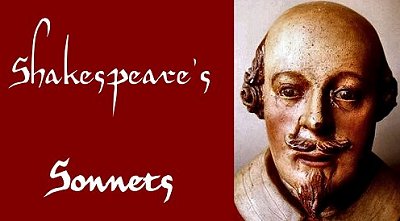
William Shakespeare
(1564-1616)
THE SONNETS
Sonnet 148
O me! what eyes hath love put in my head,
Which have no correspondence with true sight,
Or if they have, where is my judgment fled,
That censures falsely what they see aright?
If that be fair whereon my false eyes dote,
What means the world to say it is not so?
If it be not, then love doth well denote,
Love’s eye is not so true as all men’s: no,
How can it? O how can love’s eye be true,
That is so vexed with watching and with tears?
No marvel then though I mistake my view,
The sun it self sees not, till heaven clears.
O cunning love, with tears thou keep’st me blind,
Lest eyes well-seeing thy foul faults should find.
![]()
kempis.nl poetry magazine
More in: -Shakespeare Sonnets
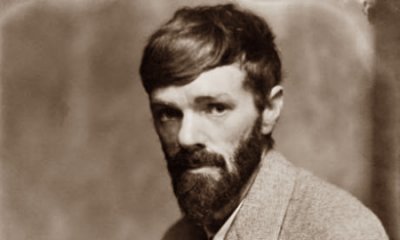
D. H. Lawrence
(1885-1930)
The Almond Tree
(Letter from Town)
You promised to send me some violets. Did you forget?
White ones and blue ones from under the orchard hedge?
Sweet dark purple, and white ones mixed for a pledge
Of our early love that hardly has opened yet.
Here there’s an almond tree—you have never seen
Such a one in the north—it flowers on the street, and I stand
Every day by the fence to look up for the flowers that expand
At rest in the blue, and wonder at what they mean.
Under the almond tree, the happy lands
Provence, Japan, and Italy repose,
And passing feet are chatter and clapping of those
Who play around us, country girls clapping their hands.
You, my love, the foremost, in a flowered gown,
All your unbearable tenderness, you with the laughter
Startled upon your eyes now so wide with hereafter,
You with loose hands of abandonment hanging down.
D.H. Lawrence poetry
fleursdumal.nl magazine
More in: Archive K-L, D.H. Lawrence, Lawrence, D.H.
![]()
Einstein en Ensor op het strand
De-Haan-aan-Zee. Woensdag 2 augustus 1933.
Van zijn vierduizendvierhonderdeenentachtig
dagen is het Derde Rijk aan de honderdvijfentachtigste
toe. De geleerde voelt zich niet meer op zijn plaats
wo die alten Wälder rauschen en trekt westwaarts,
de schilder aan zijn trage kust trouw.
In dit koninkrijk zonder eilanden is het zomer
en vrede, nog. De zee is fier op haar water,
spoelt het speels de badgasten tegemoet.
Maakt daarbij geen onderscheid. Ziet ook niet
dat Albert Einstein (54) en James Ensor (73)
samen ballen op het zand. Geluiden van branding
in hun haren, blote voeten aangetrokken.
Verte spant zeilen aan. Neen, neen: een zwarte
cirkel is nog geen o. De middag is warm
en donderdag wacht braaf op zijn beurt.
Even voelen ze zich samen machteloos,
als admiraals zonder vloot. Even,
en dan glijdt van de schaar van de toekomst
een zware schaduw.
Verschenen in Onaangepaste tijden, Zinderend, Bergen op Zoom, 2006 – © Bert Bevers
Bert Bevers poetry
kempis.nl poetry magazine
More in: Archive A-B, Bevers, Bert

Percy Bysshe Shelley
(1792-1822)
Good-night
Good-night? ah! no; the hour is ill
Which severs those it should unite;
Let us remain together still,
Then it will be good night.
How can I call the lone night good,
Though thy sweet wishes wing its flight?
Be it not said, thought, understood –
Then it will be — good night.
To hearts which near each other move
From evening close to morning light
The night is good, because, my love,
They never say good-night.
Slaap zacht
Slaap zacht? o nee, het uur valt zwaar
Dat binden moest wie scheiden wacht;
Verblijven wij steeds bij elkaar,
Dan wordt het pas: slaap zacht.
Hoe noem ik slapen “zacht”, alleen,
Al steunt ’t zijn vlucht als jij ’t lief zegt?
Maar komt voor ’t zeggen, ’t wensen, geen
Moment, volgt slaap zacht echt.
Voor harten altijd dicht tesaam,
Van ’s avonds laat tot ’s morgens vroeg,
Is nachttijd, liefste, aangenaam
En slaap al zacht genoeg.
Vertaling Cornelis W. Schoneveld 2012
Percy Bysshe Shelley poetry
kempis.nl poetry magazine
More in: Percy Byssche Shelley, Shelley, Shelley, Percy Byssche
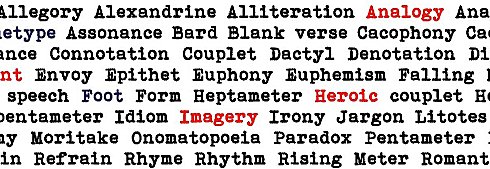
Oscar Wilde
(1854 – 1900)
Flower of Love
Sweet, I blame you not, for mine the fault was, had I not been made of common
clay
I had climbed the higher heights unclimbed yet, seen the fuller air, the
larger day.
From the wildness of my wasted passion I had struck a better, clearer song,
Lit some lighter light of freer freedom, battled with some Hydra-headed wrong.
Had my lips been smitten into music by the kisses that but made them bleed,
You had walked with Bice and the angels on that verdant and enamelled meed.
I had trod the road which Dante treading saw the suns of seven circles shine,
Ay! perchance had seen the heavens opening, as they opened to the Florentine.
And the mighty nations would have crowned me, who am crownless now and without name,
And some orient dawn had found me kneeling on the threshold of the House of Fame.
I had sat within that marble circle where the oldest bard is as the young,
And the pipe is ever dropping honey, and the lyre’s strings are ever strung.
Keats had lifted up his hymeneal curls from out the poppy-seeded wine,
With ambrosial mouth had kissed my forehead, clasped the hand of noble love in mine.
And at springtide, when the apple-blossoms brush the burnished bosom of the dove,
Two young lovers lying in an orchard would have read the story of our love;
Would have read the legend of my passion, known the bitter secret of my heart,
Kissed as we have kissed, but never parted as we two are fated now to part.
For the crimson flower of our life is eaten by the cankerworm of truth,
And no hand can gather up the fallen withered petals of the rose of youth.
Yet I am not sorry that I loved you -ah! what else had I a boy to do? –
For the hungry teeth of time devour, and the silent-footed years pursue.
Rudderless, we drift athwart a tempest, and when once the storm of youth is past,
Without lyre, without lute or chorus, Death the silent pilot comes at last.
And within the grave there is no pleasure, for the blindworm battens on the root,
And Desire shudders into ashes, and the tree of Passion bears no fruit.
Ah! what else had I to do but love you? God’s own mother was less dear to me,
And less dear the Cytheraean rising like an argent lily from the sea.
I have made my choice, have lived my poems, and, though youth is gone in wasted days,
I have found the lover’s crown of myrtle better than the poet’s crown of bays.
Oscar Wilde poetry
kempis.nl poetry magazin
More in: Archive W-X, Wilde, Oscar
![]()
In Memoriam Bernlef
(pseudoniem van: Hendrik Jan Marsman)
In zijn woonplaats Amsterdam is op 29 oktober 2012 na een kortstondig ziekbed de schrijver Bernlef overleden. Hij werd vijfenzeventig jaar. Bernlef publiceerde diverse romans, verhalenbundels, essays en dichtbundels.
MEER IN DINGEN DAN IN MENSEN
Omdat de dood in mensen huist
de buitenkant van dingen is
kan ik alleen in dingen leven zien
Hun stug en tegendraads bestaan
hun onverminderd staren in het zicht
van de mij toegemeten jaren
Daarom zie ik meer in dingen dan in mensen
die een mens die in mij groeit
in richting en in zwijgen naar hen toe.
Uitgeverij Querido treurt om de dood van Bernlef, die meer dan vijftig jaar aan de uitgeverij verbonden was. Uitgever Annette Portegies: “We verliezen niet alleen een geweldige schrijver maar vooral ook een lieve vriend. Iemand bovendien die, vanuit de traditie van ons huis, meedacht over de toekomst van de uitgeverij, en die jonge schrijvers hielp en adviseerde. We zullen hem verschrikkelijk missen.
In 1959 stuurde Bernlef enkele niet eerder gepubliceerde verhalen en gedichten in voor de Reina Prinsen Geerligsprijs, die aan hem werd toegekend. De winnende gedichten verschenen in 1960 in Kokkels en de verhalen in datzelfde jaar in Stenen spoelen. De twee boeken vormen samen zijn debuut.
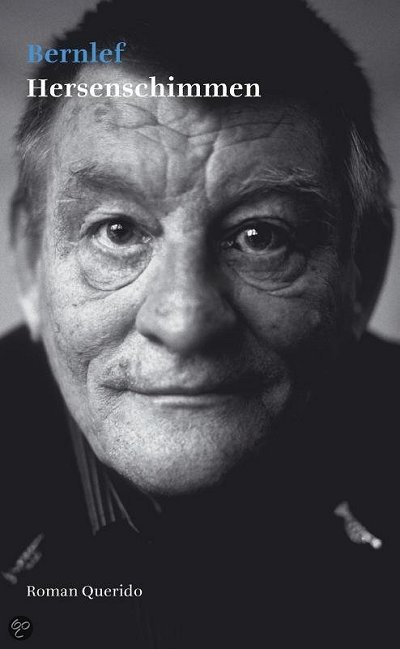
In de jaren zestig vertaalde Bernlef het werk van diverse Zweedse dichters en schrijvers en recenseerde hij voor onder andere De Groene Amsterdammer, Het Parool, De Gids en Haagse Post. Met G. Brands en K. Schippers begon hij in 1958 het roemruchte tijdschrift Barbarber.
Met de roman Hersenschimmen (1984) brak Bernlef door naar het grote publiek: van het boek zijn in Nederland en Vlaanderen inmiddels bijna een miljoen exemplaren verkocht en het werd in tien talen vertaald. Meer dan een verhaal over dementie is Hersenschimmen een liefdesgeschiedenis, met een onvermijdelijk tragisch einde. In 1988 werd de roman verfilmd door Heddy Honigmann, met Joop Admiraal in de hoofdrol.
De jazz heeft altijd Bernlefs warme belangstelling gehad. Niet alleen dichtte hij over jazz, hij schreef er ook een aantal essays over die in 1993 gebundeld werden in Schiet niet op de pianist en in 1999 in Haalt de jazz de eenentwintigste eeuw? In 2006 publiceerde hij bovendien zijn jazzverhalen in Hoe van de trap te vallen.
Het werk van Bernlef is vaak bekroond. In 1962 kreeg hij de Poëzieprijs van de gemeente Amsterdam voor zijn dichtbundel Morene (1961) en in 1964 de Lucy B. en C.W. van der Hoogtprijs voor Dit verheugd verval (1963). In 1984 werd zijn hele oeuvre bekroond met de Constantijn Huygensprijs. Voor de roman Publiek geheim (1987) kreeg hij de AKO Literatuurprijs en in 1994 werd hem de P.C. Hooftprijs toegekend voor zijn poëzie.
In 2008 schreef Bernlef het Boekenweekgeschenk, onder de titel De pianoman. Nog onlangs verschenen een nieuwe verhalenbundel, Help me herinneren, en zijn verzamelde poëzie, Voorgoed.
Bron: Uitgeverij Querido
fleursdumal.nl magazine
More in: Archive A-B, Archive A-B, In Memoriam

Norbert de Vries
Kemp natuurlijk (VII)
Kemp was een man met vele talenten. Hij is een beroemd dichter geworden, maar voor hetzelfde geld was hij een vermaard kunstschilder geworden. Hij heeft enige tijd ernstig overwogen om van het schilderen zijn beroep te maken. Wist u, dat hij zelfs gedroomd heeft van een carrière als couturier? Maar het liefst van al was hij componist geworden. Men leze het prachtige gedicht ‘Verloren componist’(1948):
Als ik mijn deel geleefd heb aan de Grote Wet,
die mij al drijft vanaf mijn vroegste dagen,
zal een groot verdriet mij zeker doen vragen:
had ik dit alles niet liever in muziek gezet?
Ik had dit alles liever in muziek gezet!
Alles wat mijn vingers streelden
en alles wat mijn handen mochten dragen,
al de lieflijkheden van die ogen-beelden,
al het schone tussen die bloemen-kragen,
al die innigheid van tinten-weelden
in het ruisen van de zomervlagen,
al de vermommingen der Grote Wet,
ik had dit alles liever in muziek gezet!
Lees straks mijn verzen maar en kijk
naar de enkele schilderijen, die ik schiep;
is dat niet alles of ik over harpen liep,
toen ik mijn weg zocht naar het Eeuwige Rijk?
Ach, wie zo’n mooi gedicht kan schrijven, die verdient toch de hoogste lof, nietwaar?
Inhoudelijk gezien: Kemp heeft, bij mijn weten, in zijn leven niet één noot gecomponeerd. Zijn ‘suites’ waren woordcomposities. Hij was wel een groot muziekliefhebber, in het bijzonder van Franse componisten als Ravel en Debussy.
Maar gedicht en geschilderd heeft hij zeker! En inderdaad, ook heeft hij kleding ontworpen.
Bijna was deze dichter de voorganger geworden van Govers, Molenaar of Visser. In 1913 liet hij via een Tilburgse relatie een aantal modetekeningen aan een Parijs modehuis zien. Men reageerde welwillend, maar het werd niks en de droom vervaagde.
Omdat Mya Brennenraedts regelmatig over mode schreef, komt dit onderwerp zo nu en dan langs in hun correspondentie. En steevast is Kemp ontevreden over de laatste mode. In 1948, bijvoorbeeld, noteert hij over de New Look: ‘Dit kan mij niet met den textielrommel verzoenen, die ik tegenwoordig om de jeugdige, goddelijke meisjesfiguren zie flodderen.’
In verband met het onderwerp ‘mode’ wil ik nog even aanstippen, dat hier en daar in zijn werk te lezen valt, dat Kemp fantaseerde (en misschien wel méér dan dat alleen) over travestie.
Veelzeggend, in dit verband, is het gedicht ‘Mevrouw N.N. te zijn’(1943)
Ik voel mijn gezicht nu als dat van Mevrouw N.N.
en zie nu alles door haar Maja-kop.
Mijn ogen zijn nu zwart, mijn lippen wen
‘k aan het vlies van rouge, dat slaapt als mond er op.
Als ‘k denk, dat ik met zulk een mond in mijn gezicht
haar man en kindren tegenkussen zou,
dan weet ik toch, hoe ik allicht
niet zo zou zoenen als een moeder en een vrouw.
Maar nu moet ik toch glimlachen met haar lach,
mijn wangen en mijn schoonheidskuiltjes zijn van haar
en dat duurt me nu weer de héle dag.
Mevrouw N.N. te zijn is lokkend en toch raar.
(haar kop, haar man en kindren: dat was buurvrouw Leunissen; de familie Leunissen woonde Turennestraat 17, terwijl de familie Kemp op nummer 21 woonde)
In zijn brief van 31 mei 1948 aan Mya schrijft hij onder meer: “Maar overigens, ja, wat voer ik eigenlijk uit. Ik schijn veel geestesafwezig te zijn zonder dat ik het weet, slaap natuurlijk gaarne om den tijd tusschen dit oogenblik en het eeuwige zoo ongemerkt mogelijk te verkorten en ben natuurlijk zoo nu en dan een poosje Mevrouw N.N., een aardige tijdspassering overigens, die mij niet veel meer oplevert dan een ondeugende glimlach van begrijpen nu en dan.”
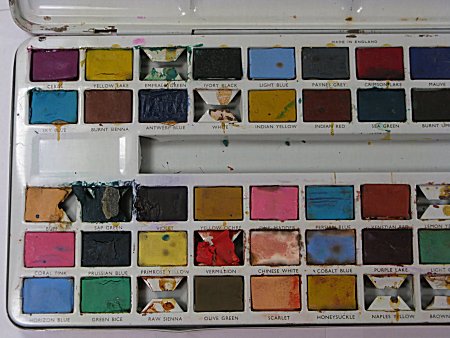
Ter afsluiting van deze aflevering geef ik hier, vanwege de boeiende inhoud én als specimen van de fraaie schrijfstijl van de dichter, de volledige brief van 5 oktober 1947 weer, gericht aan Mya Brenneraedts, met wie Kemp sinds kort (zie aflevering 6) correspondeerde.
Hooggeachte Juffrouw Brennenraedts
Toen ik Woensdagmorgen jl. naar beneden kwam, overhandigde mijn echtgenoote mij het pakketje door Uw bode afgegeven (onze hulp in de huishouding verschijnt eerst om negen uur). Uw zending is dus in goede orde en met hartelijken dank ontvangen. Waar ik echter eens – in den zwartsten oorlogstijd – een kleine oneenigheid met haar had om een arme kousenlooze Muze aan een paar linksgeweven kousen te helpen en zij haar medewerking eerst verleende, toen een ander tot-medelijden-bewogene daarin reeds had voorzien, heb ik het antwoord op de vraag naar de licht-ontvlambaren inhoud van het pakje maar verdisconteerd in een gewuif met mijn hand en de verzekering, dat ik er van af wist. Zoodra ik aan Uw zending dat heb ontleend, wat ik voor mijn gedicht denk te kunnen gebruiken, zend ik U de boeken en foto’s aangeteekend (onderstreept, ndv) per post terug.
Om te laten blijken, dat ik reeds eerder met mode van doen had, laat ik U hierbij toekomen een artikel van mij in een weekblad. De met rood aangestreepte passages zijn van directer belang, zij toonen aan het contact tusschen dichter en mode. Ik behoef het blad niet meer terug en zal zeer vereerd zijn wanneer U het een plaatsje wilt geven bij de andere curiosa op gebied van mode en wat daarmede samenhangt, die U reeds bezit.
Maar ik heb nog oudere papieren, eigenlijk al van 1913. Een fabrikant in wollen stoffen uit Tilburg, die zich voor mij interesseerde, heeft toen een drietal modeteekeningen van mij aan een hem aldaar (bij een reis naar Parijs, aldaar is dus te Parijs) bekend modehuis laten toekomen. Het antwoord heeft hij mij later getoond. Het was getypt in violet, groen en rood, blijkbaar echt modehuis-achtig en de practische Franschen of Francaises vonden mijn ontwerpen wel aardig, maar o.m. konden de arme vrouwen, die zoo’n costuum van mijn ontwerp zouden hebben aangetrokken daarin moeilijk hebben kunnen loopen of zich bewegen. Bovendien had ik nog niet de flair, die modescheppers moeten hebben om de draagsters van hun creaties te kunnen bedwelmen. Als U dus t.z.t. in het nieuwe te verschijnen bundeltje (te weten: Phototropen en noctophielen, 1947, ndv) van mij als derde strophe van het gedicht ‘Sympathieën’ leest:
“Zij weten, dat ik haar textielen bemin
en als mode-verzinner nauw heb gefaald”
dan slaat dat daarop terug. Dit gedicht werd trouwens reeds eerder in een letterkundig tijdschrift gepubliceerd en wel kort voor den oorlog.
Om nu op Uw zending over den ‘kousist’ terug te komen. Dat woord ‘kousist’ vind ik ontzettend prozaïsch. Ik vind een mooie kous iets zoo subliems en ik zou mij met een nylonist of een Mille-aghi-ist nog eenigszins kunnen verzoenen, maar enfin: het is nu in de techniek moeilijk anders.
Wat de catalogus betreft, ik heb daar wel een punt van aanloop in gevonden, dat ik er in verwachtte, nl. de danskous van Isidora Duncan. Hoe jammerlijk is deze opgevuld, met een been van een etalage-pop had het nog beter gekund. Gelukkig heb ik een paar goede boeken, waarin haar danskunst wordt bediscussieerd en goede foto’s van haar onderdanen staan.
In het algemeen genomen lijkt mij het museum toch een trieste beweging, De kousen hangen er zonder inhoud erg treurig bij. Maar daarmee krijg ik een aanleiding om te filosofeeren over de schoone vergankelijkheid hier op aarde en dat er van de kousen zelf maar weinig bekoring uitgaat, indien er den goddelijken sex-appealigen inhoud aan ontbreekt althans…..voor een man. Ik heb wel eens vaker een poosje vrouw willen zijn, niet al te lang natuurlijk, om haar diverse emoties te ondergaan en zeker ook bij het onderwerp mode.
De bundel novellen zal ook ik misschien niet heelemaal kunnen verwerken. Het beetje Italiaans dat ik leerde om Dante ‘eventjes’ in het origineel te kunnen lezen is al lang bij mij opgelost in de ruimte, maar het chapiter ‘Calze e santità’ interesseert mij buitengewoon. Als men al bedenkt dat de bezitters van mooie beenen in den regel O.L. Heer veel te weinig dankbaar zijn voor die begeerde gave en dat de dichters m.i. veel te weinig den klemtoon leggen op dat vrouwelijk schoon (want wat kan Casanova stuntelig zijn over dit onderwerp) dan kan men daarover zeker een contemplatieven grondslag vinden voor schoone verzen. In ieder geval hebt u mijn: Ego absolvo te, enz.
Ik geloof tenslotte, dat de Franceschi van de banale foto’s geen gemakkelijk leven heeft met zijn hyper-gevoelige industrie. Ik neem echter wel aan dat hem veel zal worden vergeven, omdat hij veel zal hebben liefgehad. Wat de foto’s betreft, wij moeten die balletmeisjes niet te hard vallen; zij dienen niet alleen de balletkunst, maar ook door onbevangen naakt model te staan, de schilder- en de beeldhouwkunst. Uit de onderschriften van de foto’s hoop ik mede het gedicht te puren dat mij al begon te incubeeren toen ik Uw artikel over Pilade Franceschi las. Maar dat is nog allemaal toekomstmuziek (onderstreept, ndv), al hoop ik met het materiaal van Franceschi te slagen. Binnen een dag of tien hoop ik U de zending te kunnen retourneeren.
Ik heb intusschen Uw artikel ‘Revolutie in de Vrouwenwereld’ Gazet van Limburg van 27 September jl. gelezen en mag U persoonlijk zeker tot de tegenstanders van de lange rok rekenen (waartoe ook ik behoor) voor zoover U geen concessies aan de nieuwste modesnufjes moet doen, uit andere dan louter vrouwelijke overwegingen!
Inmiddels U nogmaals bedankend voor de toezending der foto’s enz. en zeer in het bijzonder voor de toegewenschte inspiratie, verblijf ik met vriendelijke groeten en in afwachting van de toezending van het beloofde bundeltje gedichten
Gaarne
Uw dw
Pierre Kemp
Norbert de Vries: Kemp natuurlijk (VII)
Mijmeringen over Pierre Kemp uit mijn Maastrichtse tijd
fleursdumal.nl magazine
More in: Kemp, Pierre, Norbert de Vries
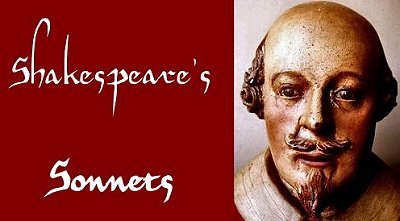
William Shakespeare
(1564-1616)
THE SONNETS
Sonnet 147
My love is as a fever longing still,
For that which longer nurseth the disease,
Feeding on that which doth preserve the ill,
Th’ uncertain sickly appetite to please:
My reason the physician to my love,
Angry that his prescriptions are not kept
Hath left me, and I desperate now approve,
Desire is death, which physic did except.
Past cure I am, now reason is past care,
And frantic-mad with evermore unrest,
My thoughts and my discourse as mad men’s are,
At random from the truth vainly expressed.
For I have sworn thee fair, and thought thee bright,
Who art as black as hell, as dark as night.
![]()
kempis.nl poetry magazine
More in: -Shakespeare Sonnets

William Shakespeare
Sonnet 146
Poor soul the centre of my sinful earth,
My sinful earth, these rebel powers’ array,
Why dost thou pine within and suffer dearth
Painting thy outward walls so costly gay?
Why so large cost having so short a lease,
Dost thou upon thy fading mansion spend?
Shall worms inheritors of this excess
Eat up thy charge? is this thy body’s end?
Then soul live thou upon thy servant’s loss,
And let that pine to aggravate thy store;
Buy terms divine in selling hours of dross;
Within be fed, without be rich no more,
So shall thou feed on death, that feeds on men,
And death once dead, there’s no more dying then.
William Shakespeare
Sonnet 146
Mijn ziel, arm centrum van mijn zondige aard’,
Mijn zondige aard’, rebelse macht vol strijd,
Waarom kwijn je van binnen, niets meer waard,
Je gevel duur beschilderend in vrolijkheid?
Waarom verdoe je voor zo’n korte huur
Fortuinen aan je villa in verval?
Erven de wormen eens jouw last zo duur?
Is’t voer voor hen dat jouw lijf bieden zal?
Ziel, leef dan op ’t verlies van jouw vasal,
Vermager hem, verzwaar ermee je buit;
Koop eeuwen tijd, verkoop elk uur’s verval;
Voed je innerlijk, gun je uiterlijk geen duit,
Dan voedt de dood jou, die de mens verzwelgt,
Sterft dan de dood, is ’t sterven ook verdelgd.
Vertaling Cornelis W. Schoneveld
(oktober 2012)
kempis.nl poetry magazine
More in: Shakespeare
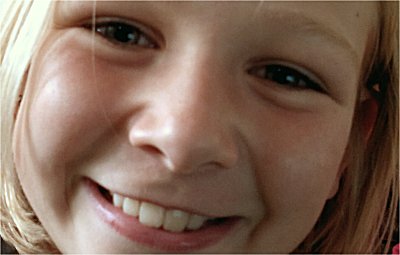
Wereld van letters en leven
Soms zit het mee,
Dan heb je geluk,
Soms zit het tegen,
Dan heb ik een boek,
Als het even,
Niet meer leuk is,
Lees ik de letters,
Eén voor één,
Dat maakt me rustig,
Dan geniet ik even,
Maar als dat niet helpt,
Is het fijn,
Om dichtbij jou te zijn
Pleun Andriessen
Pleun Andriessen is kinderstadsdichter van Tilburg
kempis.nl poetry magazine
More in: Archive A-B, Kinderstadsdichters / Children City Poets
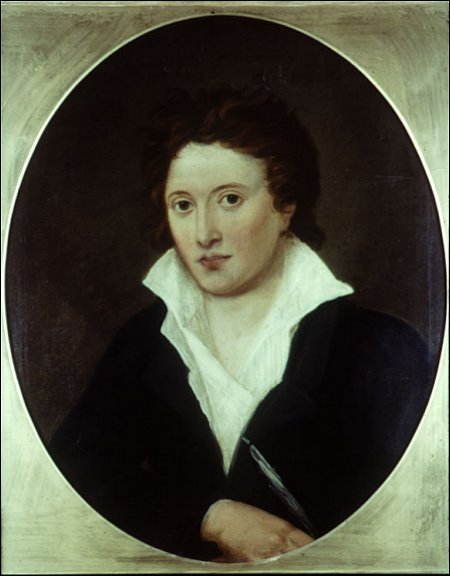
Percy Bysshe Shelley
(1792 – 1822)
Good-night
Good-night? ah! no; the hour is ill
Which severs those it should unite;
Let us remain together still,
Then it will be good night.
How can I call the lone night good,
Though thy sweet wishes wing its flight?
Be it not said, thought, understood —
Then it will be — good night.
To hearts which near each other move
From evening close to morning light,
The night is good; because, my love,
They never say good-night.
Percy Bysshe Shelley poetry
kempis.nl poetry magazine
More in: Archive S-T, Percy Byssche Shelley, Shelley, Percy Byssche

Ernst Stadler
(1883-1914)
Mittag
Der Sommermittag lastet auf den weißen
Terrassen und den schlanken Marmortreppen·
die Gitter und die goldnen Kuppeln gleißen·
leis knirscht der Kies. Vom müden Garten schleppen
sich Rosendüfte her· wo längs der Hecken
der schlaffe Wind entschlief in roten Matten·
und geisternd strahlen zwischen Laubverstecken
die Götterbilder über laue Schatten.
Die Efeulauben flimmern. Schwäne wiegen
und spiegeln sich in grundlos grünen Weihern·
und große fremde Sonnenfalter fliegen
traumhaft und schillernd zwischen Düfteschleiern.
1904
Ernst Stadler poetry
kempis.nl poetry magazine
More in: *War Poetry Archive, - Archive Tombeau de la jeunesse, Archive S-T, Archive S-T, Stadler, Ernst
Thank you for reading Fleurs du Mal - magazine for art & literature